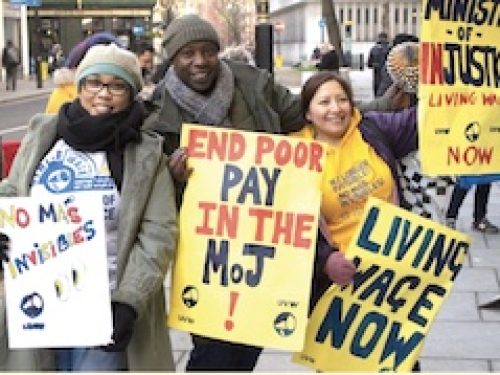Margaret McAdam and Ashley Walker
Based on data from 2023, around 12 million people, 18% of the population, live in absolute poverty, with a housing and homelessness emergency escalating as families struggle to bear the costs of permanently high prices including energy costs. An estimated 13% of households in England are in fuel poverty, and food-bank usage has risen to 1.5% of the population.
The acute shortage of affordable homes, according to Shelter, means more people face the insecurity of sofa surfing, sleeping in their cars or being forced onto the streets. At least 309,000 people in England spent Christmas without a home, including almost 140,000 children, an increase of 14% in one year.
The total property income declared by unincorporated (individual) landlords in 2021/22 was £48.86 billion, compared with £46.37 billion in 2020/21. Last year 74 per cent of all buy-to-let purchases in England and Wales were by limited companies and in the year to April data from Zoopla shows rents for ‘new lets’ increased by 10.4%.
Big business makes bumper profits from their destruction of nature and exploitation of workers. “Shell, Equinor, ExxonMobil and BP – some of the UK’s biggest suppliers of gas – made £65bn in net profits in 2023…”(ibid).
In 2023 HSBC made a net profits of £31bn, Lloyds £5.5bn and Barclays £5.3bn. In 2022 British privatised water companies paid £1.4bn in dividends to shareholders, as they vastly polluted British rivers.
As profits rise, local services declined at an alarming rate – with increasing potholes, fewer bus services, library and leisure centre closures.
“Between 2010-11 and 2022-23, net spending per person on cultural services was cut by 43% in real terms, on roads and transport by 40%, on housing by 35% and on planning and development by a third – with more cuts pencilled in for this year.”
Poorly funded public services and inadequate social security systems help the state bully workers into staying in terrible jobs, out of fear of reliance on a very poor social security system, as unemployment serves a purpose in driving down wages by maintaining a constant supply of replacement labour.
No levelling up
There has been no levelling up! What is up is poverty, exploitation, unemployment and a deterioration in the quality of life at work and in neighbourhoods. While the wealthiest engage in parasitic activities and gambling, a significant aspect of modern capitalism, wealth increasingly diverts to the top minority layers of society.
The drastic worsening of working conditions in recent decades is combined with attacks on social welfare provisions, thus public money can benefit capitalists. The real wastage of state finances are subsidies and assistance to capitalism, particularly the distribution of public assets among private capitalists who reap vast fortunes from privatisation.
Reorganisations and combinations of capital demand job losses and increased precarity, whilst capitalism individualises the blame for unemployment and precarity on the people it affects. Precarious workers suffer flexible hiring and firing according to fluctuations of the market, while the most exploited workers (many immigrant workers) face appalling conditions similar to 19th century sweat shops.
Profits rise poverty increases
Massive profits and a rise in poverty is no coincidence, it is the result of deliberate government policy to transfer wealth to rich people and big business. The productive capacity of capitalism floods the world market with commodities and capital, and drives capitalist anarchy. They hail the sanctity of free trade (as monopoly increases) and participate in trade wars and protectionism.
Since the mid-1970s, workers have suffered drastic retreats and a weakening of their organisations in face employers’ offensives. That weakening – a change in the relationship of classes – has made possible all the other evils; the destruction of the National Health Service and the social security net; oppressive individual contracts and deteriorating conditions at work alongside increasing workload and stress.
The strike wave of 2022–2023 promised the beginning of a new working class combativity revealing a working class raging against cuts to wages and conditions and ready to fight. Consequently, politicians, economists and journalists, backers of capitalism, who declare against state interference, support the brutal blocking and criminalisation of workers’ right to organise, strike and protest against their increasing exploitation.
However, new struggles will emerge and new leaderships must be built that seek unity in struggle, class independence and internationalism – for there is an international war against workers that requires socialism and workers’ power.
NOTE: Absolute poverty measures how many people this year cannot afford a set standard of living. The Department for Work and Pensions currently defines it based on the living standard an average income could buy in the year ending in March 2011. If your income is 40% below this, after adjusting for rising prices since then, you are classed as living in absolute poverty.
1 https://tinyurl.com/2v3ks3zv
2 https://tinyurl.com/mwcrbaku
3 https://tinyurl.com/3b8vwn4w
4 https://tinyurl.com/4ykv2mda
5 https://tinyurl.com/bdz5cz5e





